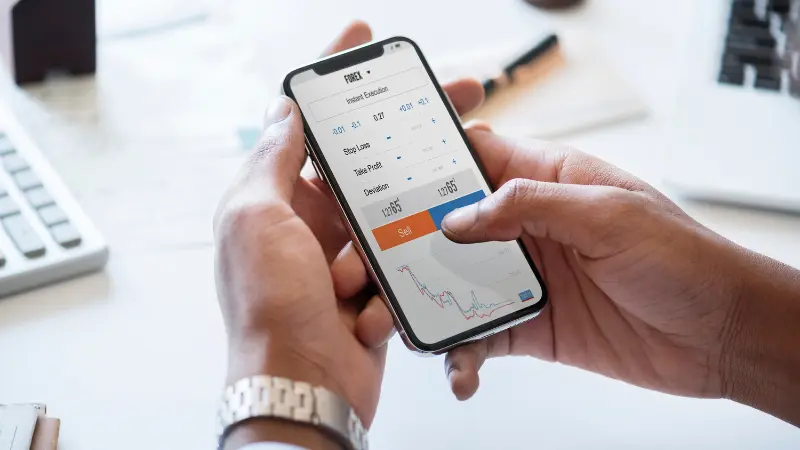
Investing in stock markets has many options like mutual funds, ETFs, index funds, etc. Apart from these investment options, investors can also tap into derivative trading. Derivative trading is basically an agreement between buyer and seller to trade in a specific product at a specific time and at a specific rate. There are four main concepts in derivative trading namely, futures, options, forwards, and swaps.
Given below are the details of the futures and options or the F&O trading model among the derivative trading.
What are futures?
A futures contract is a form of derivative trading where the transaction is set to be executed at a future rate on a future date. It is used as a form of protection from the volatility of the market which is used by the investors and traders to limit their potential losses or to gain higher profits. It is usually preferred by professional traders and FIIs.
Let us consider a simple example of a futures contract.
An investor is considering trading in Stock A having a current market price of Rs.100. The investor is predicting the stock price to go up and has secured a futures contract with a seller to buy the 100 shares of Stock A for Rs. 150 at an agreed date. At such date, if the prevailing market price of Stock A is Rs. 170, the investor has made a profit of Rs. 2,000 (Rs.20*100 shares) by buying the shares at the agreed price of Rs. 150.
However, at the agreed date if the prevailing market price of the shares is Rs. 120, the investor will have incurred a loss of Rs. 3,000 (Rs. 30*100 shares) by buying the shares at the agreed price of Rs. 150.
A futures contract is used as a tool to limit the exposure of the investor and potentially gain higher returns. Investors can enter into a futures contract for commodities, gold, currencies, etc. apart from shares.
What are options?
Options are another form of derivative trading. While a futures contract creates an ‘obligation’ for the buyer or the seller to execute the contract at the agreed prices, an option contract gives the parties the ‘right’ to execute the contract at the agreed prices.
There are two important concepts in options trading namely call option and put options. Call options give the buyer the option to buy an asset at the agreed price at the agreed date. Put options, on the other hand, give the option to sell a specified asset at the agreed price at the agreed date.
Consider the following examples to under these concepts better.
- An investor has purchased a call option to buy the shares of stock A at Rs. 100. The current market price of these shares is Rs. 120. If at the agreed date, the prevailing price of Stock A is at Rs. 80, the investor can purchase the shares from the open market instead of honouring the call option which will result in a loss of Rs. 20 per share.
- In another case, the investor has a put option to sell the shares of Stock A at Rs. 100 at the agreed date. The current market price of the shares is Rs. 70. If at the agreed date, the prevailing market price is Rs. 120, the investor has the option to sell the shares in the open market instead of honouring the out option which will result in a loss of Rs. 20 per share.
What is the difference between futures and options (F&O)?
Futures and options are both forms of derivative trading and can be traded on various stock exchanges. However, these concepts have some basic differences in the pattern of their execution. Given below are the fundamental differences between futures and options.
| Futures | Options |
| Futures contract creates an obligation for the buyer and the seller to execute the contract at the agreed price at the specified date | An options contract gives the option to buy or sell the security at the agreed price on the specified date. |
| Futures contracts require the investors to provide a higher margin of trade than options contract | Options contract requires a relatively lower margin of trade as compared to a futures contract |
| A futures contract is helpful for institutional investors while trading in higher volumes | Options contracts are beneficial for retail investors that trade in relatively lower volumes. |
| Futures contracts are riskier than options contract | Options contract limit the exposure of the investors and are less risky than a futures contract. |
| Futures contract have the potential for unlimited profits or losses for the investors | Options contract provide the potential for unlimited profits but in it the losses of the investors. |
How to trade in futures and options?
Trading in futures and options requires a thorough understanding of the securities and the market volatility. This can be gained only after years of experience and analyzing the markets carefully.
Given below are the broad steps that can be followed while trading in futures and options.
- The first step is to open a trading account with a registered broker that allows trading in futures and options.
- Futures and options can be traded with respect to individual stocks or even indexes on BSE and NSE. Investors need to carefully analyze good securities to trade in this type of derivating trading and enter into a contract.
- After careful analysis, investors can place the buy or sell contract or call or put option after paying the required margin to the broker.
- Investors can then hold the contract till the contract date and execute or trade the contract to gain maximum profits or limit their losses as the case may be.
Conclusion
Investors can use futures and options as a form of leverage or hedging the risks while trading. The cost of such trade is not to be paid upfront but is provided by the brokerage firm by paying them a percentage of the contract as margin money. Futures and options provide the potential to gain huge profits through speculations but also can increase the potential for huge losses if the estimated price level is not reached by the securities.
It is therefore essential to enter these markets after careful understanding of the securities and the impact of market fluctuations. Investors can start by investing in smaller quantities to gain experience and understanding of these concepts to eventually increase their wealth in the long run.
FAQs
1. What are the key factors that have to be monitored or mentioned expressly in any futures or options contract?
A. There are four key parameters that have to be monitored or expressly mentioned in any futures or options contract. The details of such parameters are mentioned below,
- The underlying asset that is traded
- The volume of trade
- The price at which the contract is to be executed
- The date at which the contract is to be executed (last date by which options contract can be executed).
2. What are the types of assets that can be traded through futures and options contracts?
There are several assets that can be traded through futures and options contracts like commodities, stocks, currencies, bonds, etc.
3. What is margin money?
Margin money is a percentage of the contract value that has to be provided to the broker to enter into a derivative contract. Investors can use the securities held in their account with the broker as a collateral for such margin money.




















